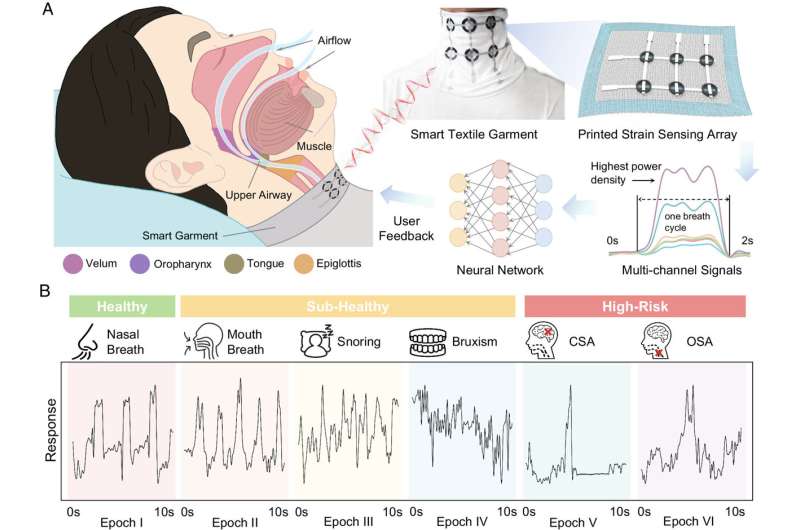The team, led by the University of Cambridge, developed printed fabric sensors that can monitor breathing by detecting tiny movements in the skin, even when the pajamas are worn loosely around the neck and chest.
The sensors embedded in the smart pajamas were trained using a “lightweight” AI algorithm and can identify six different sleep states with 98.6% accuracy, while ignoring regular sleep movements such as tossing and turning. The energy-efficient sensors only require a handful of examples of sleep patterns to successfully identify the difference between regular and disordered sleep.
The researchers say that their smart pajamas could be useful for the millions of people in the U.K. who struggle with disordered sleep to monitor their sleep, and how it might be affected by lifestyle changes. The study is published in the Proceedings of the National Academy of Sciences.

